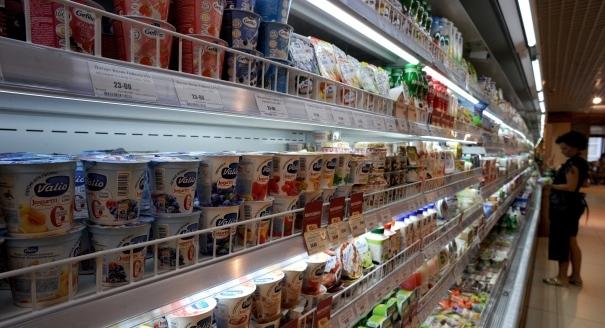International sanctions on Russia are having multiple but mysterious effects.
Russia’s currency has slid, with a dollar now worth almost 40 rubles. The unexpected criminal charges against billionaire Vladimir Yevtushenkov may be the result of a new round of economic and political austerity. As one analyst told the Financial Times, “Now they’re going after people who are not part of the inner circle. In these times neutrality is no longer enough.”
These new trading partners have nothing in common except willingness to gain a new market.
In the case of Israel and Russia, it is a matter of making up for a double trade ban. On September 1, the European Union announced new restrictions on Israeli imports following the summer offensive against Gaza. Israel and Russia evidently hope they can exchange products with each other that are not going to or from Europe.
Meanwhile, Egypt and Russia are discussing a new free trade agreement. Argentinian and Brazilian ministers are talking about how they can take the opportunity to export more agricultural products to the Russian market.
Closer to home, Armenia sees an opportunity to boost its faltering economy. President Serzh Sargsyan has talked of “great opportunities for our agricultural producers” and the agriculture minister says he wants to see exports double.
Azerbaijan, which has assured the West of its support for Ukraine in the current crisis, recently hosted a senior Russian delegation led by Moscow’s main troubleshooter for its neighborhood, Dmitry Rogozin. Azerbaijan’s Deputy Prime Minister Yagub Eyyubov told his visitors, “The European Union is putting pressure on Russia but no one will break the Russian Federation, it will never bend.”
For Russia, this is a matter of “food security,” for Azerbaijan it is a new market opportunity.
For Russia’s neighbors in the Caucasus this is also an instance where, in a relationship where Russia is generally perceived to hold all the cards, they gain some leverage of their own. Even Georgia is expanding its trade relationship with Russia, despite the recent suspension of their 1994 free trade agreement. Exports of Georgian wine to Russia surged by 65 percent in the first seven months of this year.
For all the big declarations, it looks highly unlikely that Azerbaijan tomatoes, Armenian apples, and Argentinian beef can smoothly and silently take up the empty place in the Russian market left by France, Greece, or Poland. The last time Russia underwent such a massive market disruption, in the late 1980s and early 1990s, it took years to rectify.
The politics of it may be more important for Moscow—a demonstration that there is a multi-polar world out there, in trade at least.





